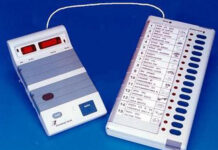by Prof Upendra Kaul
SRINAGAR: It is examination time for school children and associated anxiety and stress are at their peak. Although some degree of stress is useful in releasing hormones that improve performance by making you alert and keeping you on your toes, an excess of it can have a negative effect. This can prevent you from giving your best, especially when you have worked hard in the preceding months.
I have a personal experience from my school days. I failed my 8th standard exams with very poor marks in most subjects, including a zero in mathematics. This was because I didn’t study and fell into the wrong company of a friend who also flunked the exams. As a result, my father beat me and punished me by not allowing me to go to Kashmir during the summer break that followed the disastrous result. It was like a death sentence for me. I took a resolution the same day that I must perform well and prove to my family that I could also become an achiever. The steps I took during the next year are listed below for those who want to perform well in exams. The motto being: if I can do it, anybody can do it.
It is a good habit to take notes during regular studies in classes. Read these notes on the same day, whether at home, on the school bus, or whenever you can. Doing so helps to remember the material and supplements your reading of the subject’s book.
It’s also important to sit in the periodic tests and mock exams that are a routine during school days. These act as rehearsals and better prepare you for the final exams, reducing the stress in the final days.
Tips to follow during preparations for final exam:
Time management: Do not study continuously for more than 30 to 40 minutes. Take a break after 20 to 25 minutes during which you walk around the room, breathe fresh air and relax your mind.
Do not study for more than 8 hours a day. It becomes counter- productive.
Study place should be comfortable and try to make it similar to the exam table if you can.
During study periods keep your mobile phone off, it distracts your attention and reduces the learning power.
Always keep some time for breathing exercises in between the study periods.
Keep yourself well hydrated with plenty of fluids during the day.
Eat healthy; Plenty of fruits, salads, nuts and simple homemade diet. Don’t eat food ordered from outside. If you get stomach or intestinal infection you will lose time, energy and stamina.
Sleep for at least 8 hours every night. Studying late night is not desirable. Fatigued mind does not have enough grasping power.
Change subject if you get bored or saturated with one subject. It really helps in grasping what you have gone through.
Always keep your goal in mind. Whenever you get negative feelings, think about the reason you are studying and to achieve that goal you need to do well in the exam.
Never take exam as a life-or-death challenge. There are enough opportunities in life. This exam is not the end of the world.
On exam days always have a good breakfast so that your sugar levels don’t lower down. Brain needs energy for your memory to answer the questions. So, eat well.
Reach to the centre early to avoid last minute struggle and panic.
Read the question paper carefully and make your choices if that is the pattern.
Divide your time and answer every question well. The questions that you find difficult also need your attention and write whatever you know correctly. Keep watch in front of you and do not overshoot times.
Don’t hesitate to communicate with the staff conducting the exam for any clarifications regarding the paper. They are usually empathetic.
Answering exam questions is an art which is learned from your guides, mentors and teachers. There are several scientific ways of learning and improving your performance and your teachers are experts in that. Have confidence in yourself and always keep your goal in front of you.
(Author is a Cardiologist and Founder Director of Gauri Kaul foundation)















